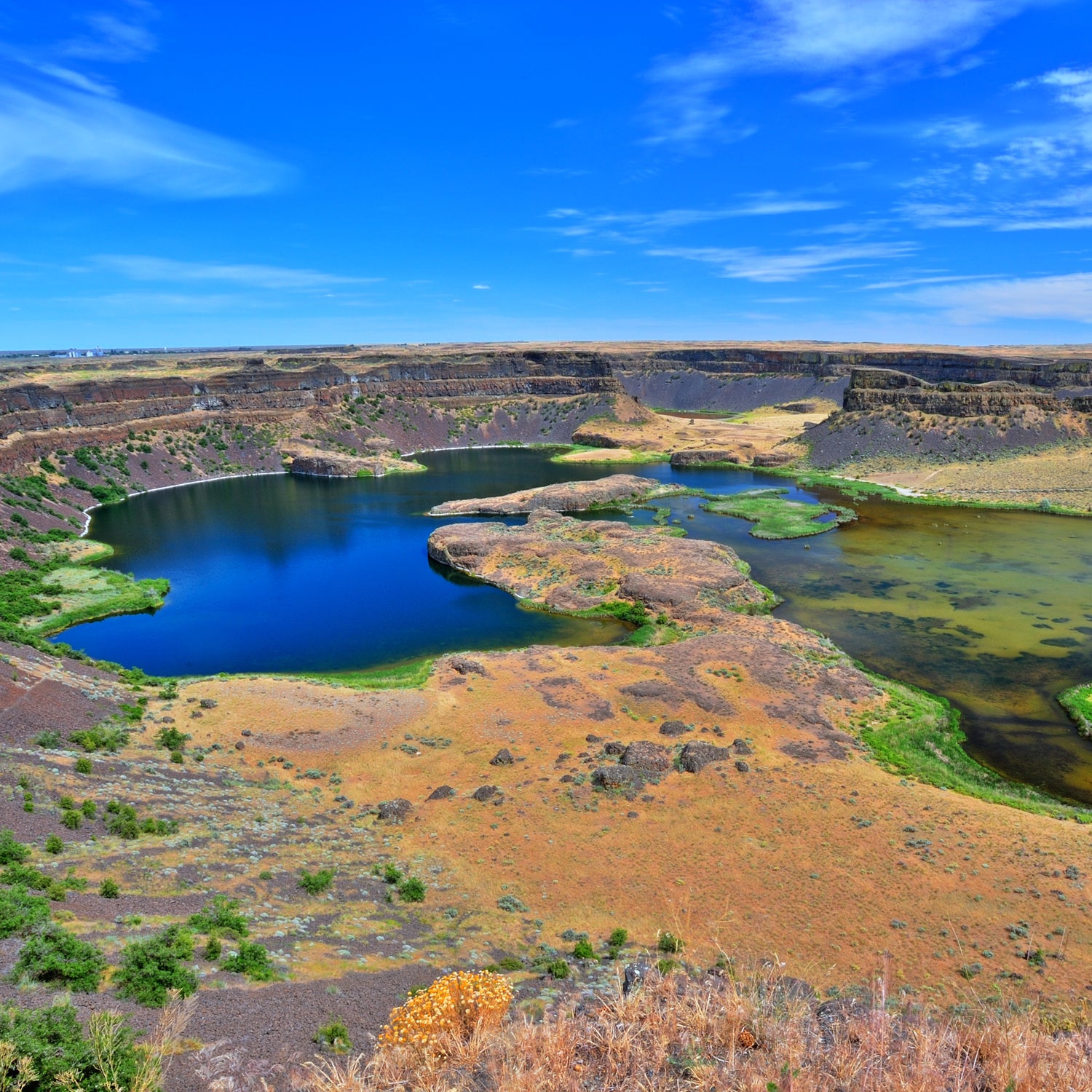Since its founding back in 2009, funky-destination arbiter  has showcased the odd and usual across the globe.
The website features entries on everything from hair museums to the countryÔÇÖs biggest (and┬áonly) unclaimed baggage museum. After seven years in operation, co-founders Dylan Thuras┬áand Joshua Foer, with associate editor Ella Morton, are releasing ┬áfeaturing over 600 of their favorite oddities.
For the adventurous, Atlas Obscura┬áis goldmine of unusual hiking destinations┬áand road trips that wind far, far off the beaten path, says Thuras. Here, with help from Thuras,┬áis a collection of the AtlasÔÇÖ best oddball destinations.
DevilÔÇÖs Kettle
This spot on Lake SuperiorÔÇÖs rugged north shore, a stoneÔÇÖs throw from Canada, is one of ThurasÔÇÖ┬áfavorite attractions. About a mile and a quarter down┬á┬áthrough MinnesotaÔÇÖs Judge C. R. Magney┬áState Park, the Brule River cascades into a waterfall. ÔÇťItÔÇÖs a split waterfall,ÔÇŁ Thuras says. ÔÇťOne┬áside of the waterfall goes into a river like you expect and the other side disappears into this┬áglacial pothole.ÔÇŁ Where the water in the pothole goes is a mystery. ÔÇťDespite really concerted┬áefforts to figure out where the water comes outÔÇŁÔÇöscientists have dropped in dye and ping┬ápongs to no effectÔÇöÔÇťnobody knows where it goes, Thuras says.╠ř
Stiltsville
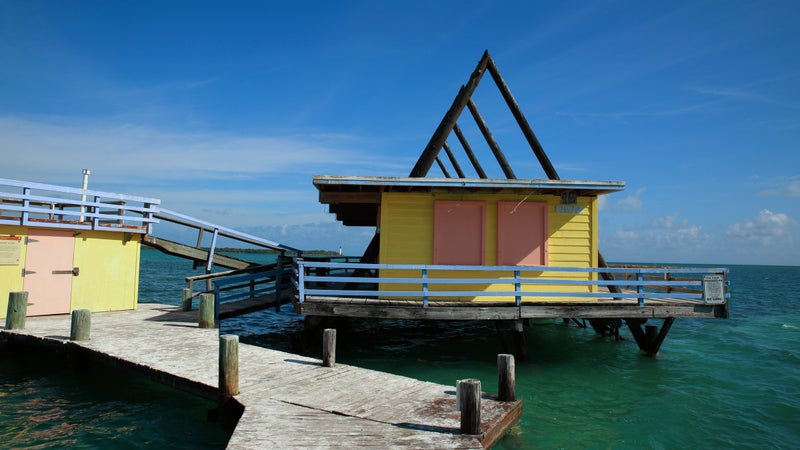
Although Atlas Obscura started with a few hundred entries written by Thuras and Foer, the vast┬ámajority of entries today are written by volunteer contributors. The Wikipedia model has led to┬áover 10,000 published articles online, Thuras says, with a few thousand in the backlog, too.╠ř
Stiltsville, a collection of shacks built on stilts a mile into Biscayne Bay, in Florida, is a treasure trove for┬áexplorers. The ÔÇťcommunity at seaÔÇŁ was built in 1920s and ÔÇś30s and served as a den of booze┬áand gambling during prohibition. At one time there were 27 structures above the bay, but┬áhurricanes have taken their tollÔÇötoday, only seven remain.
Although you have to a permit to dock at Stiltsville, a trip out to the shacks is an easy jaunt for┬á.╠ř
Ra PauletteÔÇÖs Cave
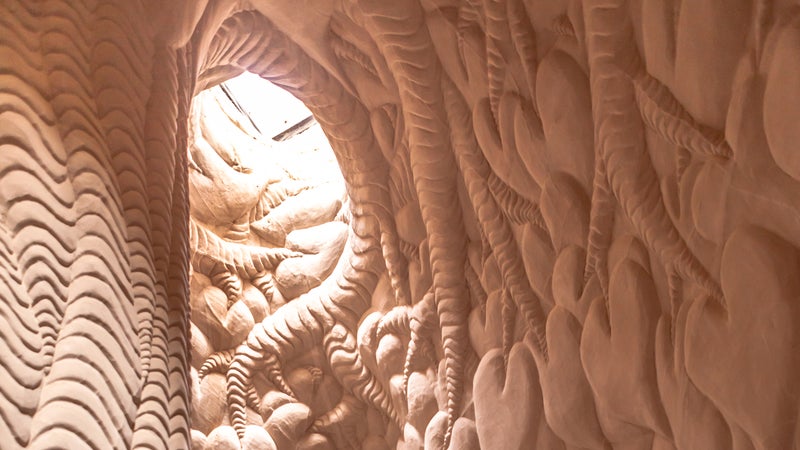
These enticing caves, dug into the New Mexico desert, are an Atlas Obscura classic. For over 25┬áyears, Ra Paulette, a New Mexico artist, has hand carved ┬áand created a series of┬áwhat the Atlas calls ÔÇťpsychedelic sandstone temples.ÔÇŁ The miles of caves, Thuras says, are┬áworth the trek. ÔÇťTheir locations are kind of secret, but theyÔÇÖre not locked or anything,ÔÇŁ he says.╠řÔÇťIf you hike out you can find them.ÔÇŁ
Ringing Rocks of Montana
Not too far from Butte lies a particularly interesting pile of stones. The geological formation┬áisnÔÇÖt much to look at, but when tapped with a metal wrench or pipe, .╠řHitting one rock will cause others┬áthroughout the pile to call out in different timbres or pitches.
ÔÇťIt is believed that the ringing is a combination of the composition of the rock and the way the┬ájoining patterns have developed as the rocks have eroded away,ÔÇŁ the Atlas notes, ÔÇťthough┬áultimately a concrete scientific explanation has yet to be arrived at.ÔÇŁ
California City
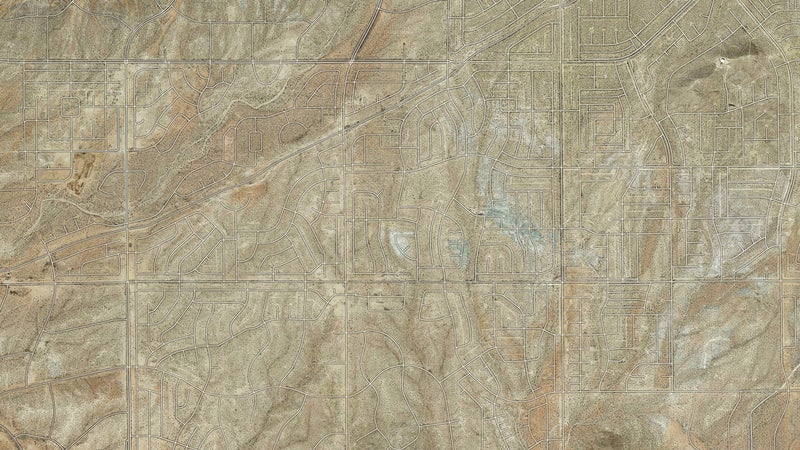
Northeast of Los Angeles, smack in the middle of the desert, is one of the most interesting places to mountain bike in the Mojave.
California City was supposed to be a suburban paradise. Its developer figured millions would┬áflock to the desert if he built thousands of cheap houses on leafy cul-de-sacs. The┬ácityÔÇÖs founder was so confident, he carved hundreds of miles of streets in a grid and named them all. The city┬ánever took off, but the location is now a surreal 125 square mile destinationÔÇöan entire city┬ástreet system laid out, with a central park, but no housesÔÇöfor anyone looking for a particularly┬áunusual mountain bike ride.
Fireflies of the Great Smoky Mountains
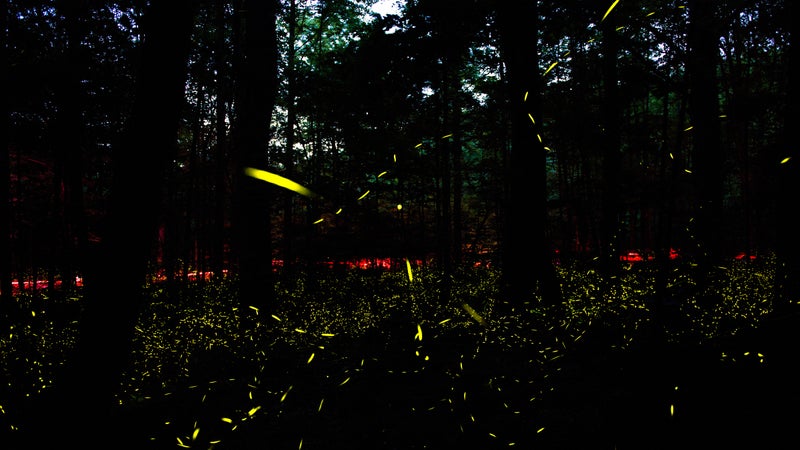
Two weeks out of the year, the Smoky Mountains are home to one of the AtlasÔÇÖ most┬áspellbinding sights. Each June, swarms of fireflies light up the park with a synchronized display┬áof flashing lights. Per the Atlas, ÔÇťThese bugs start up in mid-June at 10 p.m. nightly. They┬áexhibit six seconds of total darkness; then in perfect sync six more seconds.ÔÇŁ
The NPS has and even runs a nightly shuttle during the show.
Blythe Intaglios
The geoglyths of PeruÔÇöthe famed ÔÇömay get more attention, but California has its┬áown collection of gigantic drawings carved into the earth.
║┌┴¤│ď╣¤═° Blythe, in the Colorado desert, are the Blythe Intaglios, a collection of enormous┬áfigurines scraped from the clay. The largest figure is 171 feet long and can only be truly appreciated┬áfrom the air. Their origins aren't┬áknown;┬áscientists estimate they may date back 3,000 years.
The Atlas is so vast, and filled with so many far flung entries, that Thuras says┬áitÔÇÖs impossible to see them all. ÔÇťThe percentage I visit is a tiny fraction, but I try to get to as┬ámany as I can when IÔÇÖm traveling,ÔÇŁ he says.
Horsetail FallÔÇÖs Fire Fall
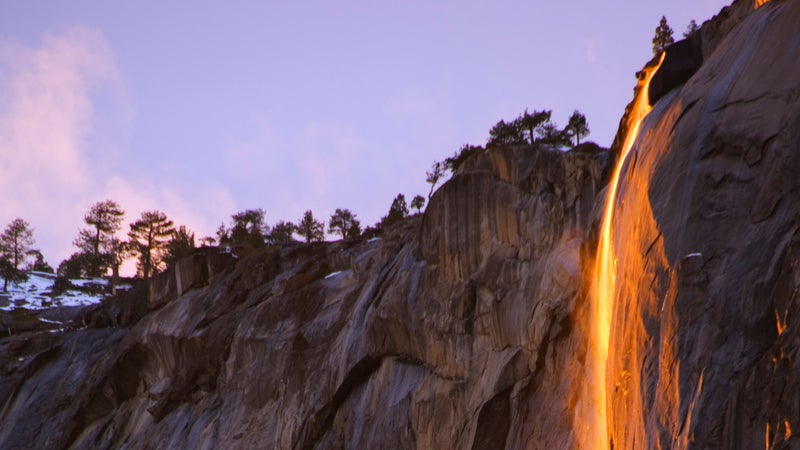
One of the nicest jaunts in the Atlas is also one of the most rewarding. For a few hours a day during the last two weeks of February, Horsetail Falls in Yosemite appears to catch fire. You can catch the sight, a trick of the setting sun over El Capitan, in the valley like most of the other photographers who pile into the park, but the Atlas suggests hiking away from the picnic area for unique, uncrowded viewing.
Dry Falls
In Central Washington, far from the lush forests of the coast, is the ÔÇťgreatest waterfall that ever┬áexisted.ÔÇŁ The falls, three times the size of Niagara, would be a wonder of the worldÔÇöif water┬ástill flowed down it.
Today, is a vast landscape of groundwater-fed lakes and a habitat for unique wildlife.╠řThere are 15 miles of trails throughout and above the canyon, and campsites, too.
Hamilton Pool
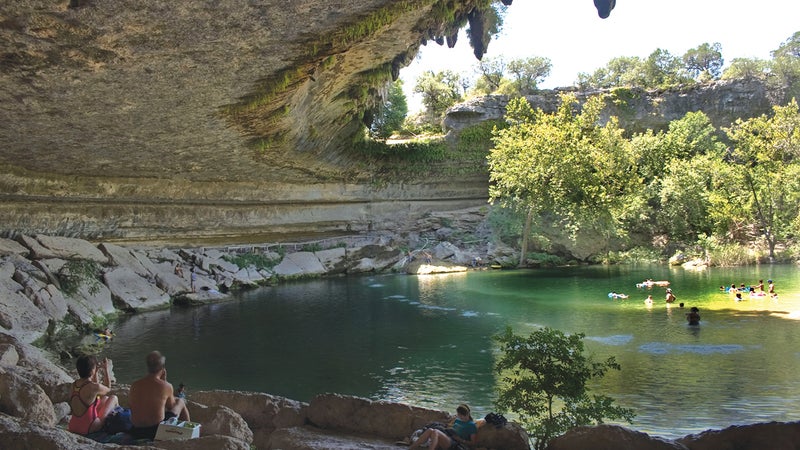
Thuras and Foer never expected Atlas Obscura to take off the way it has. ÔÇťWe went into this┬áwithout a business plan,ÔÇŁ Thuras says. ÔÇťIt was a passion project.ÔÇŁ
The Hamilton Pool is classic Obscura. ItÔÇÖs accessibleÔÇöthe poolÔÇÖs 23 miles outside AustinÔÇöbut it┬áfeels worlds away from normal. Over the centuries, an underground river has carved away at┬áthe limestone beneath TexasÔÇÖ hill country, leading to this freshwater oasis. The pool, which is┬áoften ringed with waterfalls, features a small beach and a cavern for exploring, too.


